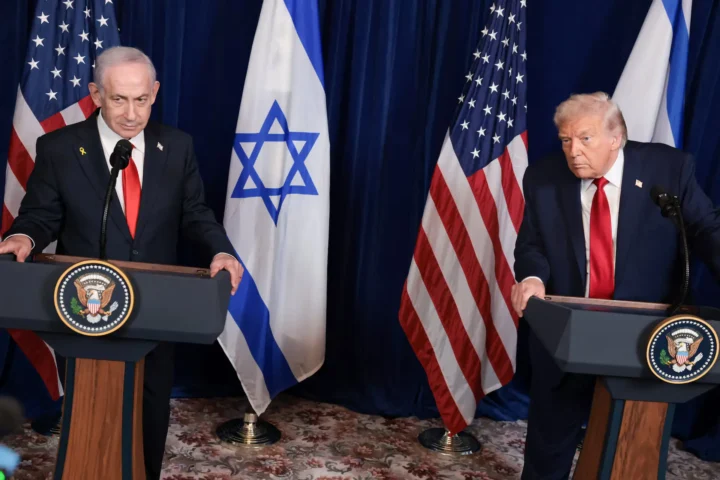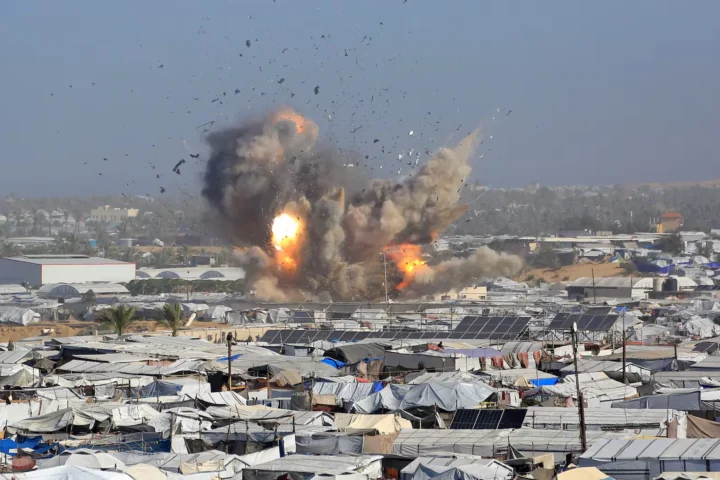As the winter chill sets in across Europe, France finds itself in a political frostbite, leaving not just its own citizens shivering with uncertainty but also casting long shadows over the European Union’s cohesion. President Emmanuel Macron, once hailed as the architect of a modern, dynamic France, now stands at the epicenter of a political maelstrom that threatens to undermine the very foundations he sought to strengthen.
In June 2024, Macron’s centrist Ensemble (“Together”) Movement faced a crushing defeat in the European Parliament elections. Undeterred, he called for snap legislative elections, betting on a resurgence of support to stabilize the domestic scene. Instead, the gamble backfired spectacularly, leaving the National Assembly fragmented into three roughly equal factions, each at odds with the other. Macron’s vision of a streamlined, progressive France teetered on the brink as his political allies struggled to maintain a foothold in a landscape increasingly dominated by polarization.
September saw the appointment of Michel Barnier, a seasoned center-right figure, as Prime Minister, tasked with the herculean job of taming France’s burgeoning fiscal deficit. Barnier’s austerity measures, however, were met with relentless opposition. By December, it was evident that his efforts would crumble under the weight of parliamentary gridlock, orchestrated by an unlikely alliance of the far left and far right. This coalition, united by mutual disdain for Macron’s economic reforms, succeeded in toppling Barnier’s government, forcing Macron to reach into his political repertoire once more.
Enter François Bayrou, a centrist stalwart and one of Macron’s earliest allies, appointed as Prime Minister on December 13. Bayrou inherits the same daunting mandate: to present an austerity-laden budget capable of curbing a fiscal deficit that now stands at a staggering 6.1% of GDP. Yet, the challenges ahead mirror those Barnier faced—parliamentary impasse and a populace divided by pressing socio-economic issues.
At the heart of France’s polarization lie universal grievances: soaring living costs, deteriorating public services, heightened immigration flows, and instability in Europe’s near abroad, including volatile regions like Ukraine and the Middle East. Macron’s centrist agenda, aimed at structural reforms initiated in 2017, seeks to bolster the business climate, halt tax hikes, streamline pensions, and push the EU towards deeper integration in defense and energy. These reforms, however, have alienated both the far left and far right, who demand higher taxes on the wealthy, a reversal of pension reforms, and a retreat from Brussels’ increasing influence.
The far-right National Rally, under Marine Le Pen, pushes for stringent immigration controls, a slowdown in the clean energy transition, and skepticism towards foreign interventions. Meanwhile, the united left-wing New Popular Front, led by Jean-Luc Mélenchon and Olivier Faure, champions expansive social protections and ambitious climate action. This ideological chasm makes any attempt at budgetary compromise a Herculean task, with France’s public spending already at a record high of 58.3% of GDP and tax collection languishing at 52.2%.
The stakes extend beyond France’s borders. Moody’s recent downgrade of France’s debt rating from Aa2 to Aa3 signals growing concerns about the country’s fiscal stability. While not yet on the brink of a Greek-style debt crisis, the risk of contagion within the EU looms, particularly as neighboring Belgium remains without a government and Italy races to align its budget with EU norms. The European Central Bank’s Transmission Protection Instrument (TPI) could offer a lifeline, but only if France demonstrates a credible commitment to deficit reduction—something Bayrou’s fragile government might struggle to achieve.
Amid this domestic chaos, Macron retains significant clout over foreign policy. His recent diplomatic maneuvers, from rallying support for a European military force in Poland to stabilizing the Middle East post-Assad, underscore his enduring influence. Yet, any expansion of these initiatives requires domestic approval, further entangling foreign ambitions with internal paralysis.
Europe now faces a leadership void. With France’s political instability and Germany’s Chancellor Olaf Scholz’s government collapsing, the EU finds itself without its traditional powerhouses. Ursula von der Leyen of the European Commission and Poland’s Donald Tusk are stepping into the breach, but their leadership may lack the cohesion and authority previously provided by Paris and Berlin. The signing of a landmark free trade agreement with Mercosur and the looming return of Donald Trump to the White House amplify the urgency for a unified European stance. However, without France and Germany at the helm, the EU risks becoming a disjointed ensemble rather than a unified bloc.
This leadership vacuum could embolden nations like Italy’s Giorgia Meloni or Hungary’s Viktor Orbán to negotiate independently with external powers, fracturing the EU’s unified front. In a time when European integration has historically relied on the synchronized efforts of its largest members, the absence of strong, cooperative leadership could derail decades of progress.
As Bayrou steps into the role of Prime Minister, the question remains: Can he navigate the same treacherous waters that saw Barnier’s efforts sink? The odds appear slim, given the entrenched positions of the Assembly’s factions and the pressing need for both fiscal restraint and social equity. Without a breakthrough, France’s debt could spiral, triggering broader economic repercussions across the EU.
Macron’s predicament is a microcosm of a larger global trend: the struggle to balance economic reform with social welfare in an era of rising populism and ideological extremism. France’s journey through this political quicksand will not only define its own future but also test the resilience and unity of the European project. As winter deepens, the world watches to see if Bayrou can thaw the icy stalemate or if France will remain ensnared in a protracted political winter, with ripple effects felt far beyond its borders.











